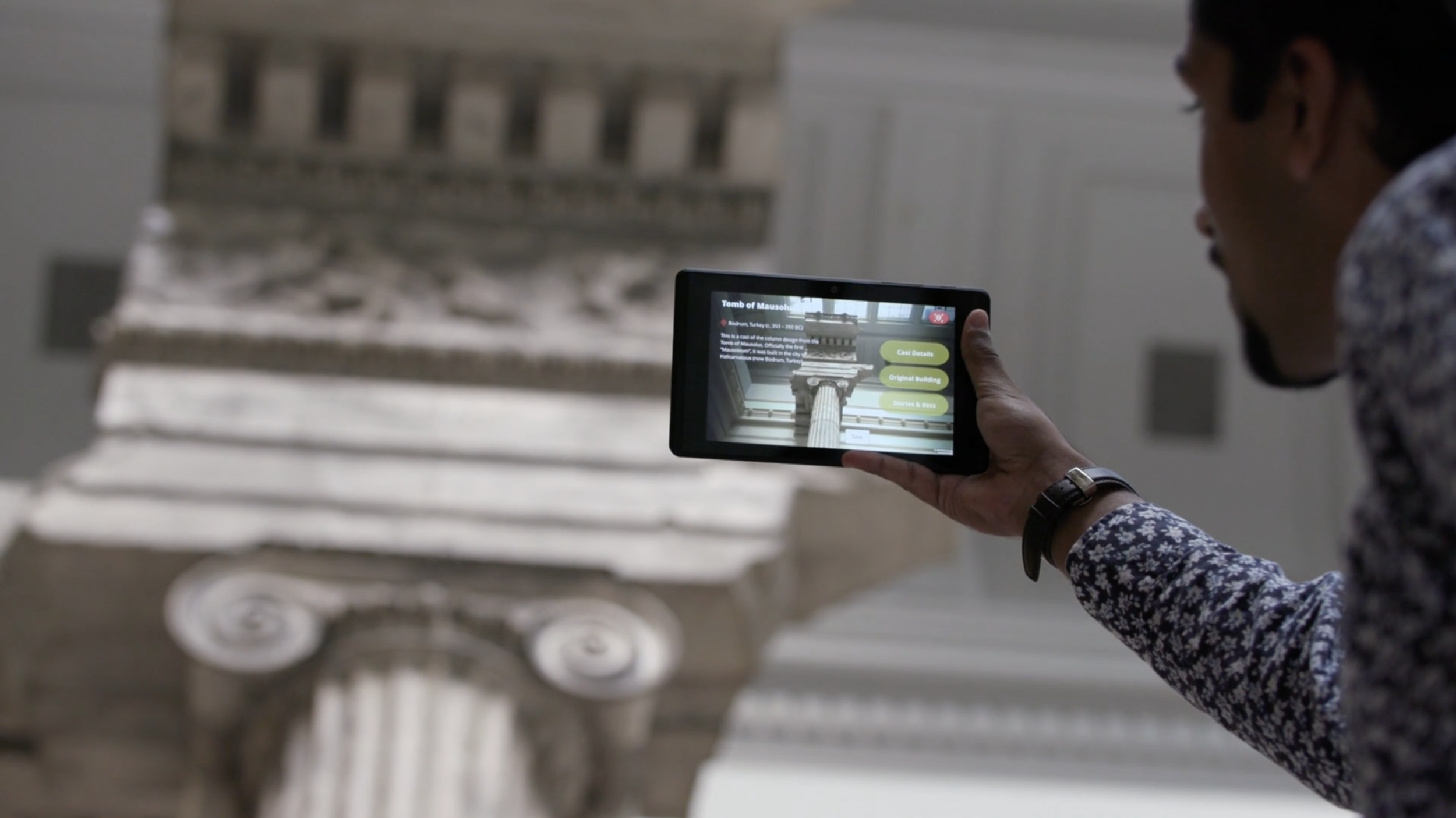
Plaster ReCast
Carnegie Museum of Art has the second largest collection of plaster casts in the world. However, visitors rarely stop at the Hall of Architecture and fully appreciate the artifacts. Plaster ReCast was an ambitious project to deliver to the museum a proof of concept of an engaging AR experience in 16 weeks.
My Role
I led UX of this project from User Research, Interaction and Visual Design, to the Usability Testing of the final working product.
Besides the curators at Carnegie Museum of Art, I worked alongside a Producer, a 3D Artist, a Content Creator, and two Software Engineers.
Plaster ReCast was launched in Fall 2017 at CMoA, Pittsburgh.
The Challenges
In 16 weeks, make visitors fall in love with architecture
Our goal was to engage visitors more with the artifacts in the Hall of Architecture with AR technology. However, we didn’t want to simply throw on the AR markers and CAD models. Instead, it was important for us to inspire a sense of exploration in both digital content and physical environment, without taking away the traditional museum experience.
Our high-level goals were to
Make the experience engaging and educative for all visitors
Create 'wow' moments during their visit
Hand over the museum a platform for further research and innovation
The platform and hardware suggested by the museum was Google Tango.
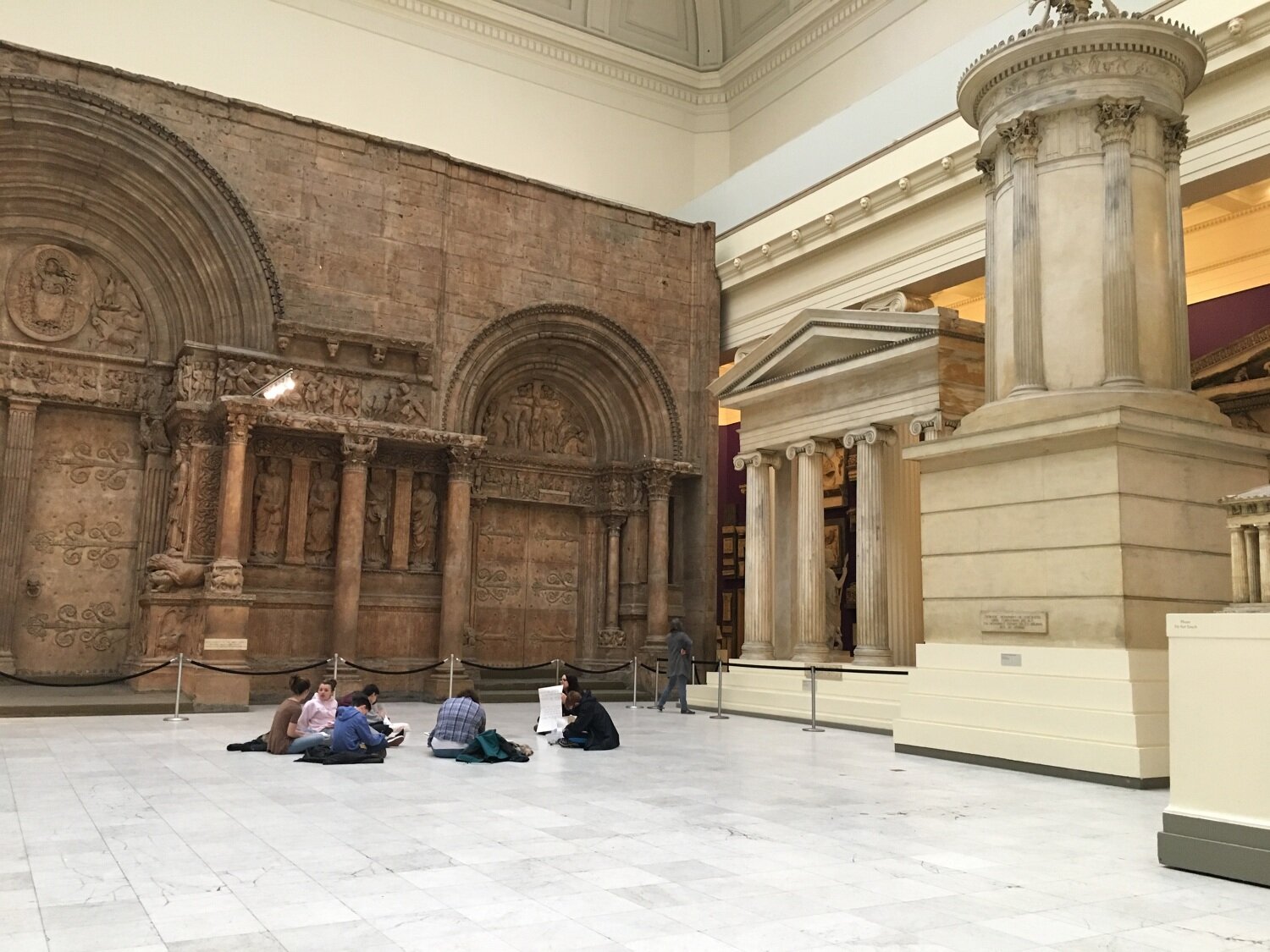
Kickoff
Early insights from the field
To understand the factors that kept visitors away, we interviewed 6 participants and observed their visits in the museum. The main problems discovered were:
The layout of exhibition was overwhelming, yet scattered
Visitors didn’t have a way to dive in, but only to browse the wall
Lack of historical and geometric context
The visitors were usually eager to learn more, but clueless about where to find the information.
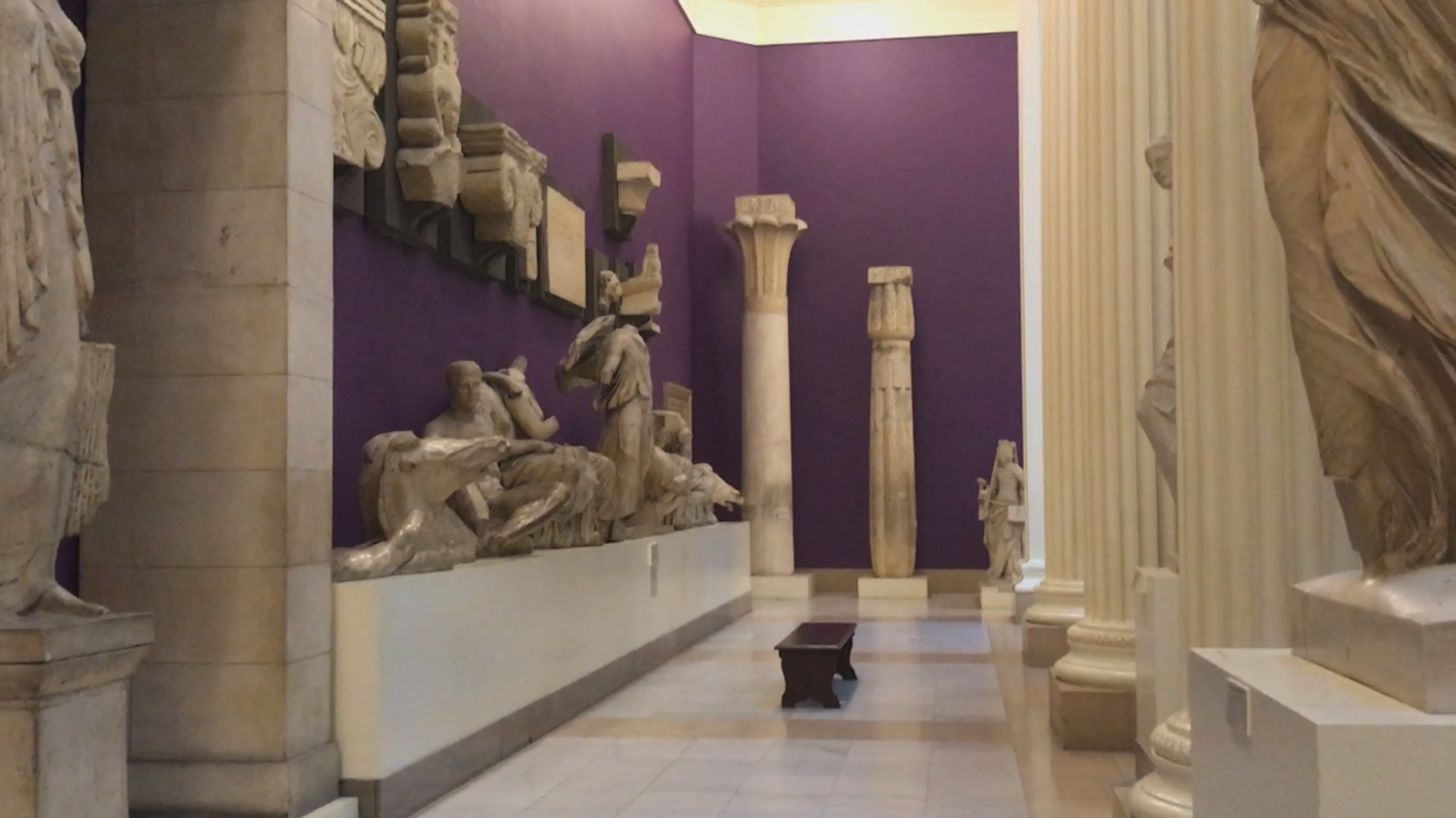
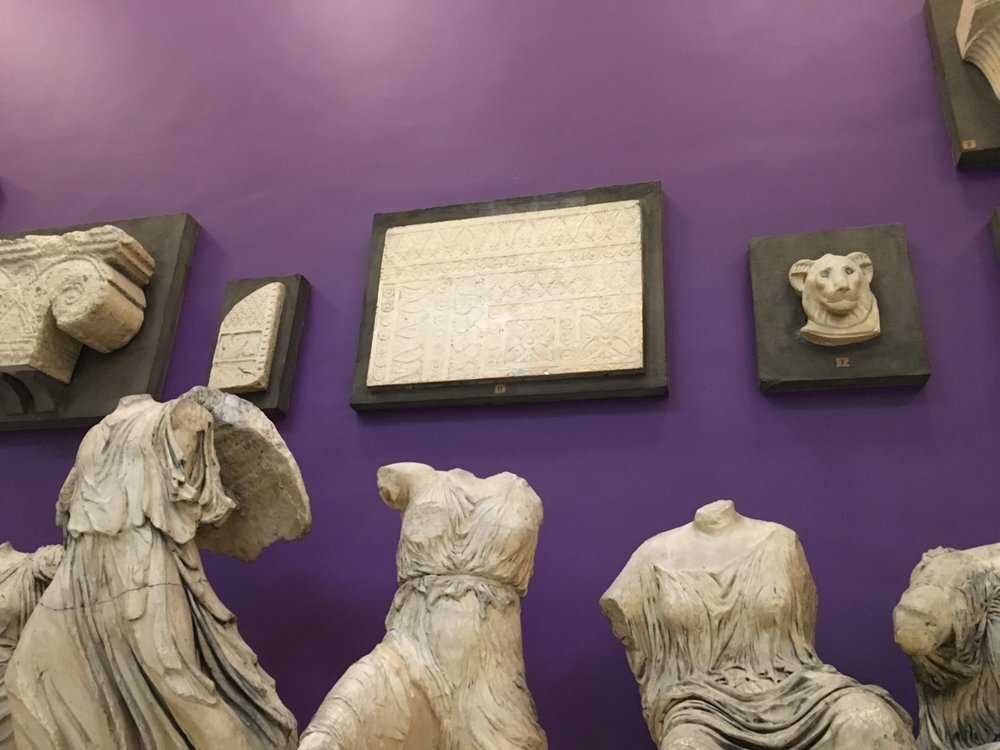
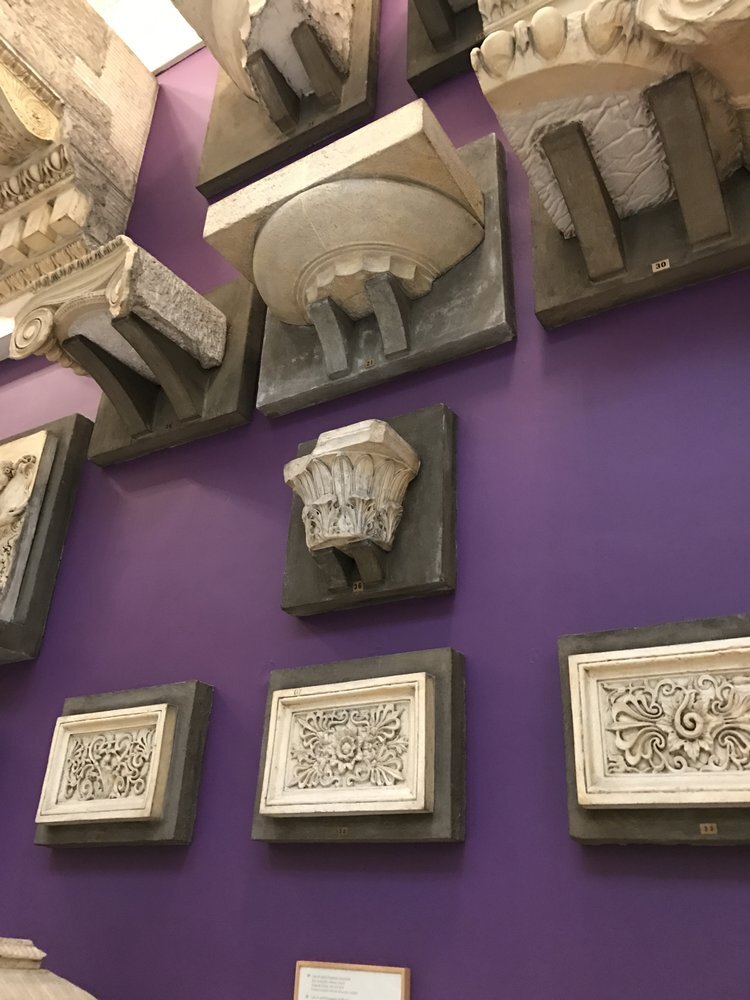
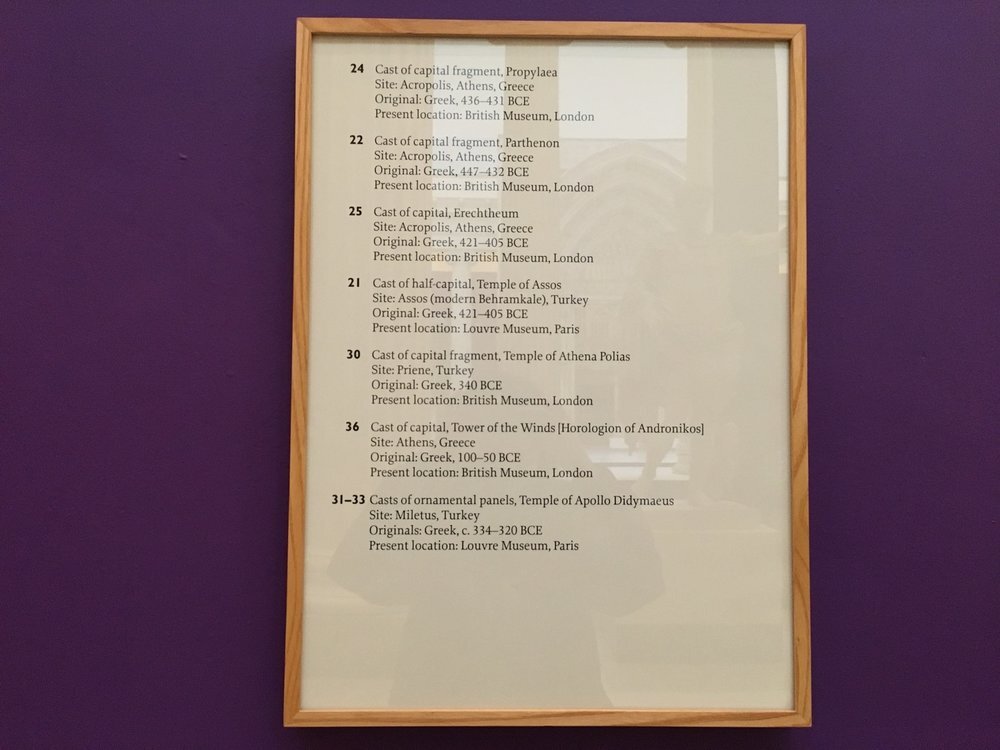
The approach
Design, prototype, test, and do it again
After group brainstorm over the field research insight, I quickly sketched out the user journey and concept screens. I spent one week iterating on 3 major versions based on user tests with paper prototypes, before finally moving on to a higher fidelity version.
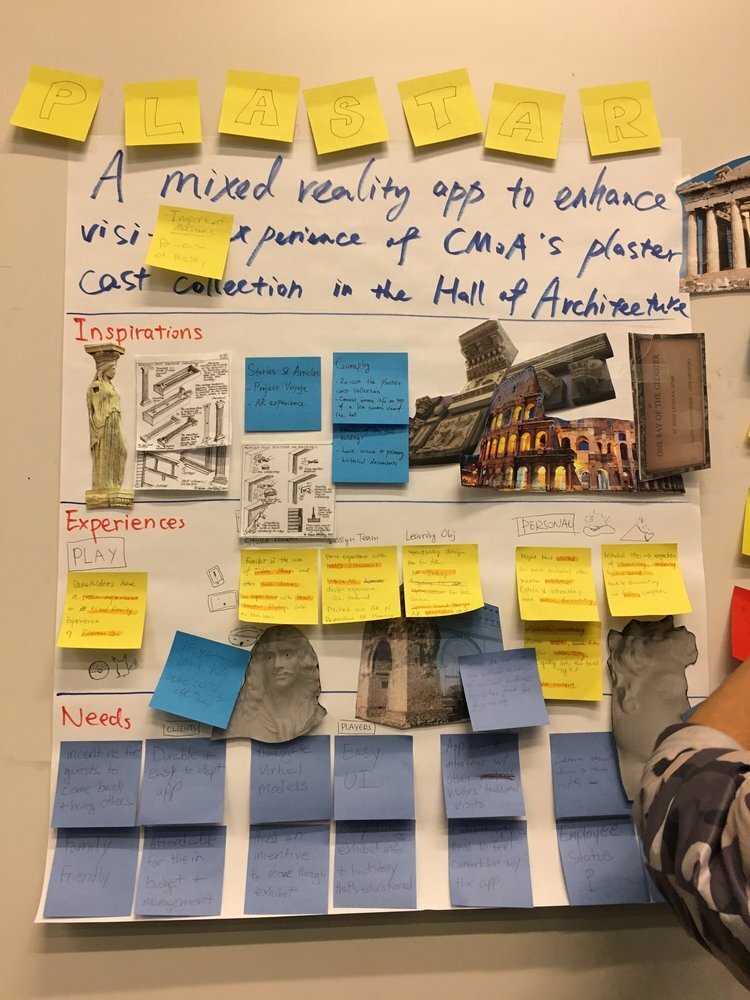
Ideation board
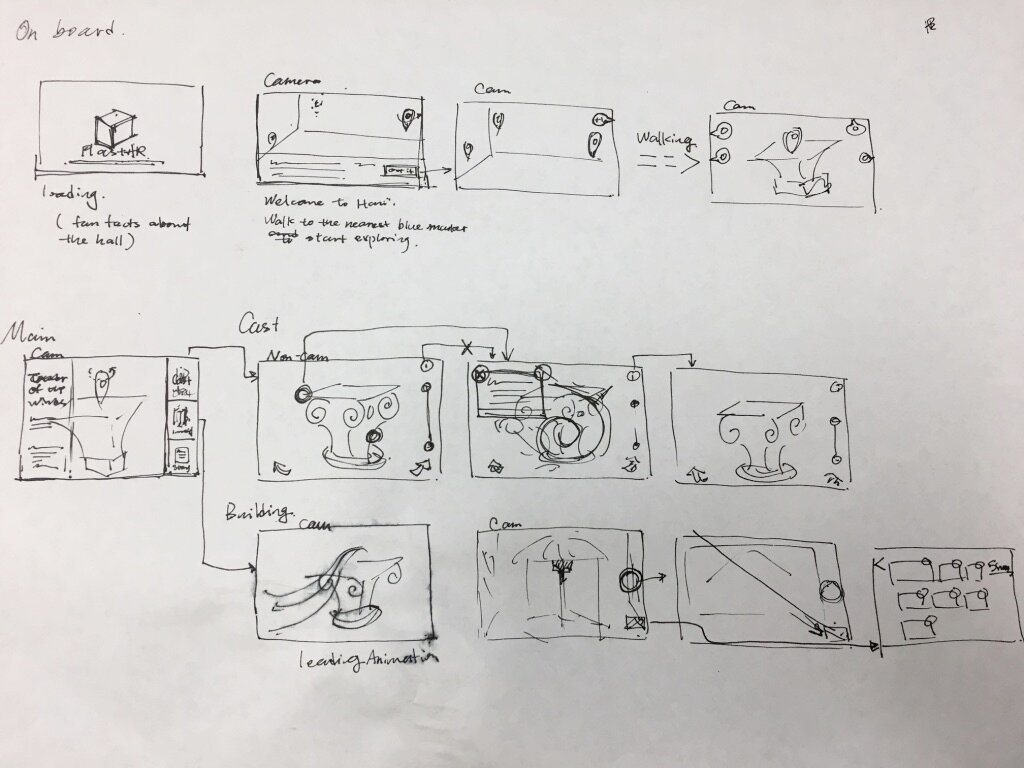
User flow sketch
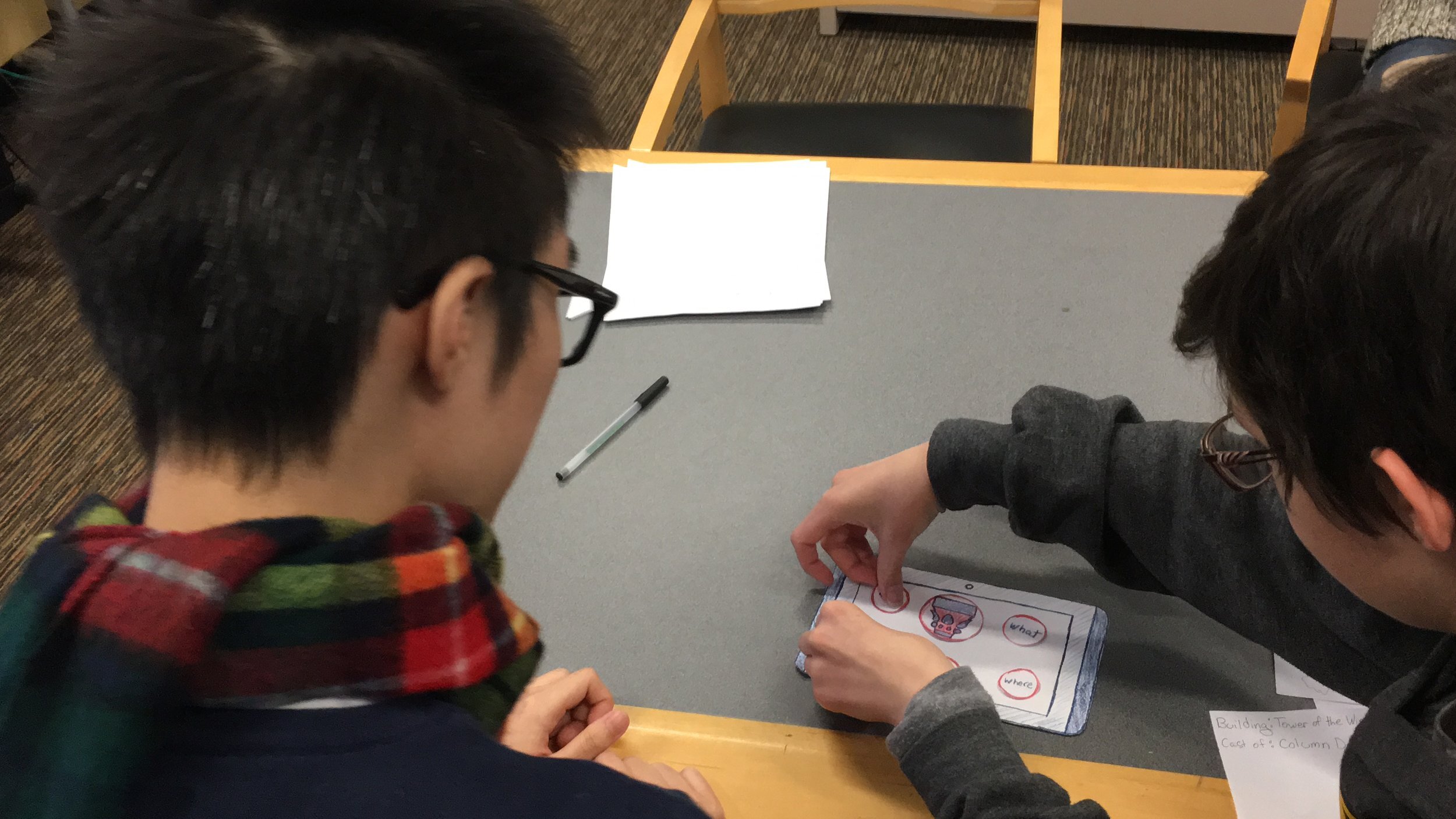
Early test with paper prototypes
Interactions
Sometimes it doesn't make sense on paper
Due to the nature of AR, certain concepts were hard to interpret on paper or static digital files. At week 5, I created an interactive prototype on InVision to test out the user flow, but all the screens with a camera view failed to communicate the context to users.
Working with our engineers, I tested the basic interactions with digital prototypes created in Unity. Users responded very positively to them.
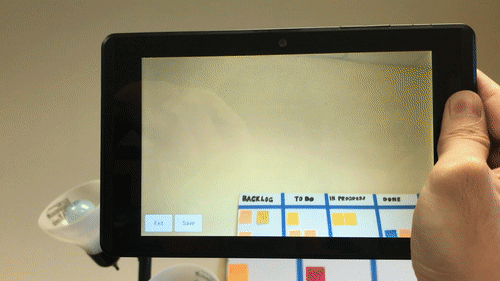
Interaction - Scan the room to activate AR content
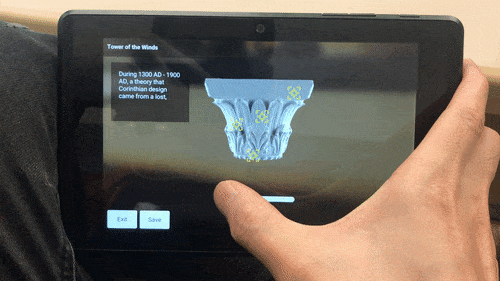
Interaction - View 3D plaster cast and information
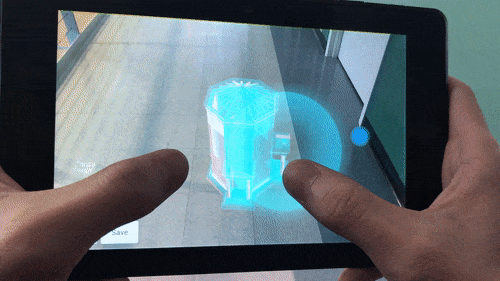
Interaction - Construct the architecture on the floor
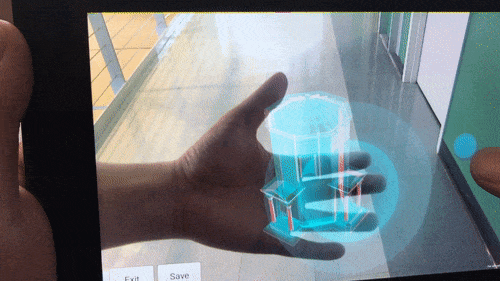
Interaction - Take photos with virtual object, save, and share
The launch
Architecture dream coming true
In the fall of 2017, Plaster ReCast app launched at CMoA during Copy + Paste, an eight-month interactive investigation and exhibition at the museum’s spectacular Hall of Architecture.
Media feature
Top 10 Architecture Shows to See in 2018, Architect’s Newspaper, January, 2018
Architecture comes alive through Carnegie Museum of Art’s new Plaster ReCast augmented reality app, Next Pittsburgh, October 2017
Plaster ReCast at the Carnegie Museum of Art, AIA Pittsburgh, November, 2017
SoA's Augmented Reality App Puts Museum Visitors in Touch with Architectural History, SoA Carnegie Mellon University, December 2017
Time Travel in Augmented Reality with the Carnegie Museum of Art, ARPost, October 2017
App to tell the stories behind Carnegie Museum of Art’s Hall of Architecture, AP News, October ,2017








